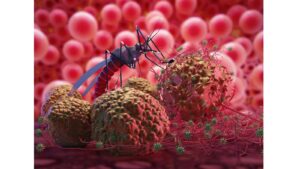
Indonesia’s AI Breakthrough in Malaria Diagnosis Signals New Hope in Disease Elimination
A Computer-Aided Diagnosis (CAD) system trained to detect malaria parasites in blood smear images—an area long reliant on manual microscopy.

A Computer-Aided Diagnosis (CAD) system trained to detect malaria parasites in blood smear images—an area long reliant on manual microscopy.

CHRISTCHURCH, New Zealand — A new longitudinal study offers compelling evidence that childhood exposure to air pollution can have enduring impacts on cognitive, educational, and mental health outcomes. The study, based on data from the Christchurch Health and Development Study (CHDS), reveals that elevated air pollution exposure during early developmental years is associated with attention problems, substance abuse, conduct issues, and lower educational attainment in adolescence.

With strategic backing from UK’s Richardson Family and Temasek Trust’s C3H, Co-Axis aims to accelerate SDG-aligned innovation across Asia’s climate and health ecosystems.

In a groundbreaking move to bolster climate resilience, Indonesia is set to launch the world’s first AI-powered public health platform specifically designed to predict and manage climate-sensitive diseases.

Red-level heat index grips Phuket while Bangkok and 34 other provinces brace for dangerous conditions

Solarvest, a leader in clean energy solutions, announced on Wednesday that it will equip Ara Damansara Medical Centre, Bukit Tinggi Medical Centre, ParkCity Medical Centre, and Subang Jaya Medical Centre with solar PV systems, helping these facilities reduce their reliance on conventional electricity.

Despite climate change being one of the most pressing public health threats of our time, the study found that only 70% of surveyed institutions offered climate and health education, with just 39% making it mandatory.

From Pacific herring to pink shrimp, 180 out of 182 specimens were found to contain microplastics and microfibers. Pink shrimp, notorious for their filter-feeding habits, bore the highest concentrations, while Chinook salmon had the least—but none were entirely free of contamination.

A new study jointly conducted by Ahmedabad’s Physical Research Laboratory and Delhi Technological University (DTU) reveals that pedestrians in Delhi are exposed to staggering levels of harmful nanoparticles.